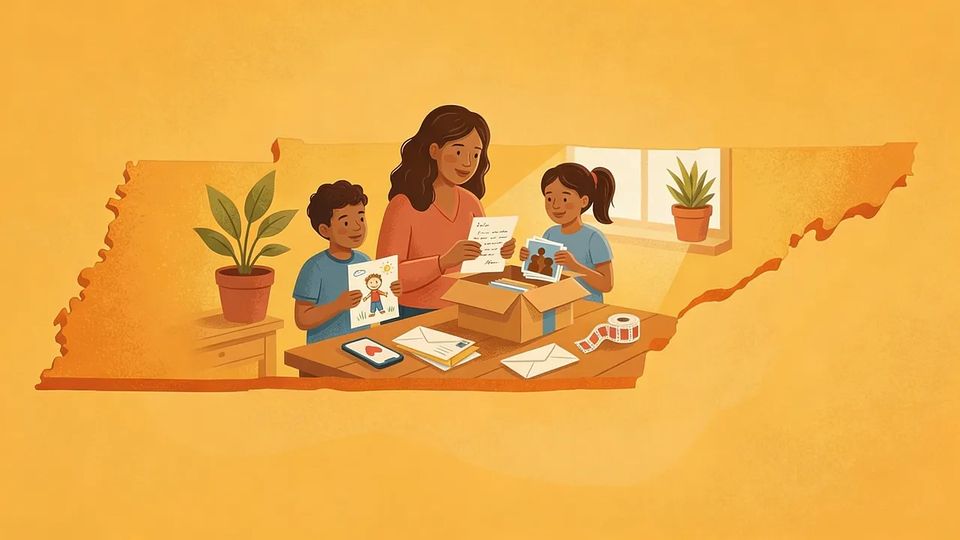
Tennessee
Facility Info
Start with the county sheriff's office or jail website for the most reliable phone numbers and mailing address. Stewart County, for example, lists separate...
Read guideWhat facility pages usually list and what to verify
A good Tennessee jail webpage usually tells you what type of people the facility holds, which helps you figure out what rules might apply. Houston County...
Read guidePhone & Messaging
In Tennessee county jails, phone contact is typically set up so your loved one calls you, not the other way around. One jail's published rules state that...
Read guideMail & Photos
Mail rules can look very different from one Tennessee county jail to the next, so always read the facility's current mail page before you send anything....
Read guideSending Commissary
Only use deposit methods the jail (or county) publishes, and double-check you're funding the right account. Some Tennessee jails direct families to...
Read guideVisitation
Visiting hours are county-specific. Houston County Jail lists visiting hours on Saturdays and Sundays from 8:00 a.m. through 5:00 p.m. Maury County...
Read guideFind an Inmate
Search for a loved one and send messages and photos in minutes.

Common Questions
Q
Can an incarcerated person receive incoming calls from family?
In at least some Tennessee county jails, no, inmates cannot receive incoming calls from family. The jail’s published rules may state that inmates can only make outgoing calls, and calls may be collect unless the inmate has money on their phone account.
Q
How do I add money for phone time or commissary?
Follow the jail’s posted vendor instructions, because the vendor can vary by county. Some facilities use NCIC accounts for receiving calls, video visits, and messages, while others direct families to SmartDeposit, and some jails also offer lobby kiosks for funding trust or commissary.
Q
Can I send photos or greeting cards to an inmate?
It depends on the jail’s mail policy. One Tennessee example says greeting cards and photos (if approved) are scanned and sent to the inmate’s electronic mail account instead of being delivered as paper, while another publishes a narrow photo exception tied to specific envelope size and postmark dates.
Q
What counts as legal mail and how should I mark it?
Some Tennessee jails require privileged correspondence to be clearly labeled on the outside of the envelope. If your letter is legal mail, mark it exactly the way the facility instructs (for example, clearly marked as "LEGAL MAIL").
